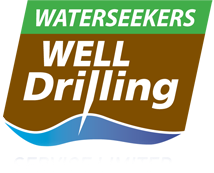What is Legionnaires’ disease?
Legionnaires’ disease is a type of pneumonia. It was named after an outbreak of severe pneumonia that affected a meeting of the American Legion in 1976. It is an uncommon but serious disease.
It is actually one of a group of similar diseases collectively known as legionellosis. The other forms, eg Pontiac Fever and Lochgoilhead Fever, have similar symptoms but are not as serious as Legionnaires’ disease.
Legionnaires’ disease occurs more frequently in men than women. It usually affects middle-aged or elderly people, and it more commonly affects smokers or people with other chest problems.
How do people get it?
The agent that causes Legionnaires’ disease is a bacterium called Legionella pneumophila. People catch Legionnaires’ disease by inhaling small droplets of water suspended in the air, which contain the bacteria.
Certain conditions increase the risk from legionella:
- a suitable temperature for growth, 20 to 45oC;
- a source of nutrients for the organism, eg sludge, scale, rust, algae, and other organic matter;anda way of creating and spreading breathable droplets, eg the aerosol created by a cooling tower or spa pool.
However, remember that most people exposed to legionella do not become ill, and Legionnaires’ disease does not spread from person to person.
What are the symptoms?
The symptoms of Legionnaires’ disease are similar to those of flu:
- high temperature, fever and chills;
- cough;
- muscle pains;
- and headache.
In a bad case there may also be pneumonia, and occasionally diarrhoea and signs of mental confusion.
Where does it come from?
Legionella bacteria are widespread in nature, mainly living in natural water systems, eg rivers and ponds. However, the conditions are rarely right for people to catch the disease from these sources.
Outbreaks of the illness occur from exposure to legionella growing in purpose-built systems where the water is maintained at a temperature high enough to encourage growth, eg cooling towers, evaporative condensers, spa pools, and hot water systems used in all sorts of premises (work and domestic).
Most community outbreaks in the UK have been linked to installations such as cooling towers, which can spread droplets of water over a wide area. These are found as part of air-conditioning and industrial cooling systems.
Fatal cases of Legionnaires’ disease have also been associated with spa pool demonstrations.
What measures are there to control legionella?
To prevent exposure to the legionella bacteria, you as a dutyholder must comply with legislation that requires you to manage, maintain and treat water systems in your premises properly. This will include, but not be limited to, appropriate water treatment and cleaning regimes.
Remember, legionella can grow in any workplace if the conditions are right – you do not have to work with microbiological agents, eg in a laboratory, for exposure to occur. If you are responsible for any of the water systems described in HSE’s Approved Code of Practice (ACoP) and Guidance “Legionnaires’ disease: The control of legionella bacteria in water systems” (L8) you will need to assess the risk of employees and others in the workplace contracting Legionnaires’ disease.
Copies of L8 can be purchased from. HSE also publishes severalfree leaflets and a video explaining legal duties and the control of legionella in cooling systems and hot/cold water systems available from HSE Books.
Separate regulations (The Notification of Cooling Towers and Evaporative Condensers Regulations 1992) require the notification of cooling towers to yourLocal Authority (contact them directly for further information).
If you think any of these symptoms or risks apply to you or your work place, then do not hesitate to give us a call on 07500 704861 or email us at [email protected] or [email protected]
Established in 2008 we have accounts across the across the country. Our engineers have combined relevant experience of over 77 years.
We have vast experience in the design, supply, installation and servicing of water all aspects of treatment equipment. Such equipment being installed on private borehole water supplies, community water supplies and commercial water supplies the like.
We offer water treatment chemicals, advice and consultancy for industrial cooling and heating systems.

